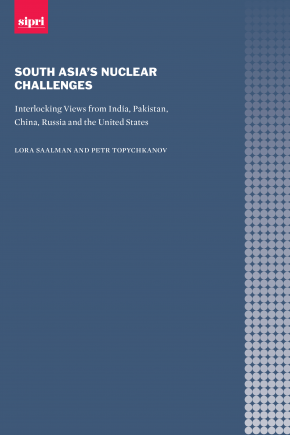South Asia’s Nuclear Challenges: Interlocking Views from India, Pakistan, China, Russia and the United States
This report provides an overview of views on nuclear postures and escalation affecting South Asia, based on 119 research interviews conducted in 2020 with military, nuclear, political and regional experts from India, Pakistan, China, Russia and the United States. The publication also builds on the findings from a virtual workshop that SIPRI hosted on 8 and 9 December 2020 on ‘Nuclear challenges in South Asia: Views from India, Pakistan, China, Russia, Australia, New Zealand and the USA’.
These discussions revealed a variety of interlocking insights on such issues as no first use, lowered nuclear thresholds, conventional and nuclear entanglement and emerging technologies that are shaping strategic stability. The publication consists of five country-focused sections that explore nuclear postures, strategic technologies and escalatory risks, as well as conclusions that offer building blocks for the next steps on engagement.
This report was prepared in the framework of the SIPRI project Assessing Nuclear Deterrence Risks and Challenges in South Asia, generously supported by the German Federal Foreign Office.
1. Introduction
2. India
3. Pakistan
4. China
5. Russia
6. The United States
7. Conclusions


